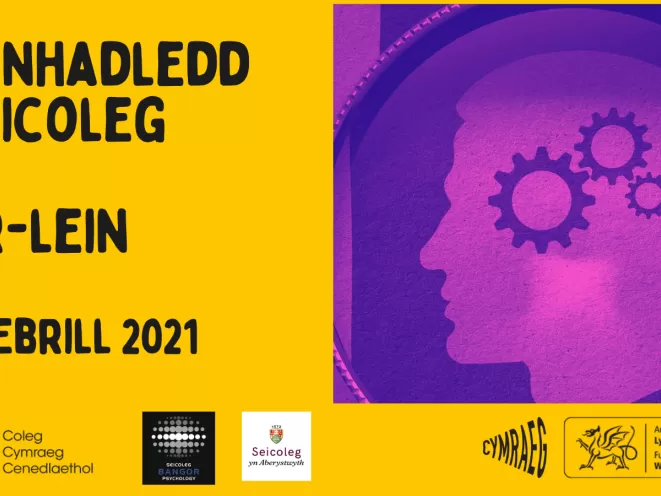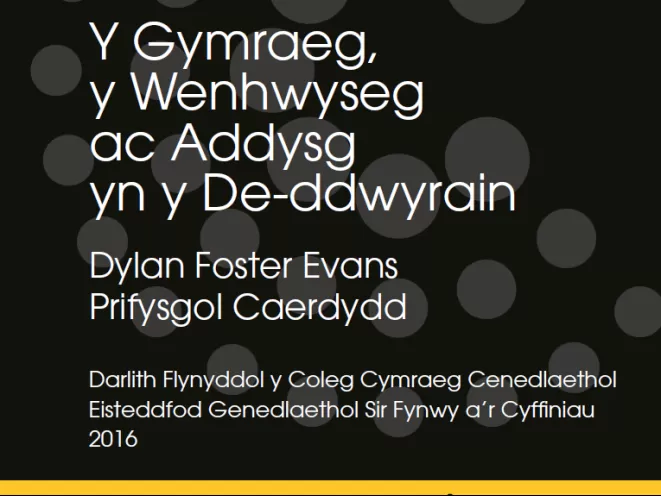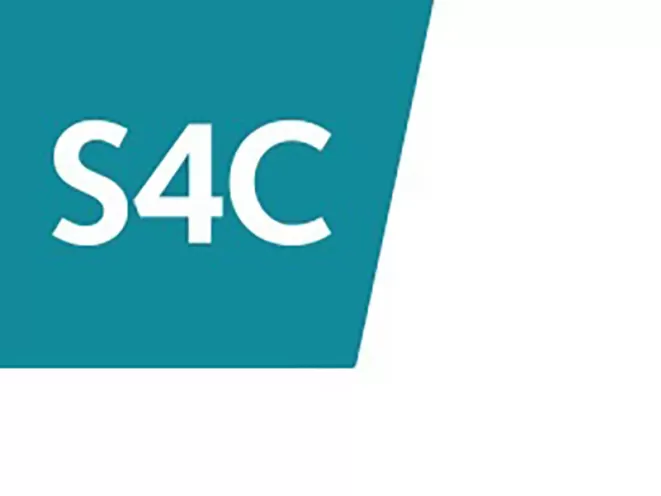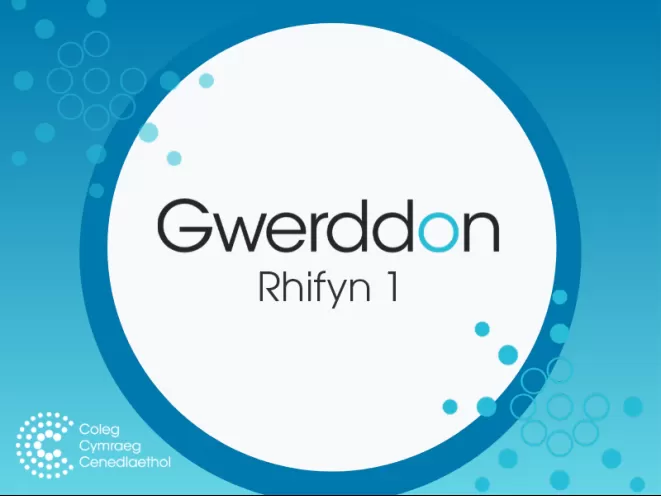A conference held on 28 April 2021 for undergraduate and postgraduate Psychology students and those studying related subjects such as health and education. 17-18 year old learners were invited to join. The morning presentations followed the themes of: Health & Wellbeing Language, Development and Education. A Careers Panel was held in the afternoon with people representing the following careers: Educational Psychologist Clinical Psychologist Applied Behaviour Analysis Psychologist Speech & Language Therapist Higher Education lecturer There was also an opportunity to ask questions. The conference was held online, through the medium of Welsh
Online Psychology Conference
Charlotte Greenway ac Alison Rees Edwards, 'Agweddau Athrawon tuag at ADCG: Adolygiad ac Argymhellion ar gyfer...
Attention-Deficit Hyperactivity Disorder (ADHD) rates in classrooms have increased in recent years. Literature has acknowledged the significance of teachers’ attitudes towards ADHD when making referral and intervention decisions (Anderson et al., 2012) and how teachers’ attitudes affect pupil behaviours and outcomes (Rush and Harrison 2008). Teachers need to provide support for these children, yet they often feel ambivalent towards ADHD due to a lack of sufficient knowledge (Alkahtani 2013), conflicting information surrounding the disorder (Dryer, Kiernan a Tyson 2013), different cultural expectations (Moon 2012) and educational systems (Timimi and Radcliffe 2005). This paper provides a review of the literature regarding teacher attitudes towards ADHD, explores limitations in the current literature and the concerns surrounding the measurement of teachers’ attitudes towards ADHD. The paper ends with recommendations for the future.
Physical Education teachers’ perceptions of high-quality Physical Education in Welsh-medium schools across sou...
In a report in 2013, the Welsh Government suggested that raising the status of Physical Education (PE) to become a core subject, similar to Welsh and Mathematics, is an essential element in tackling the current obesity epidemic. However, PE lessons must be of a high quality in order to have a positive effect on pupils. PE teachers play a crucial role in delivering high-quality PE lessons; therefore, gaining an understanding of their perceptions about high-quality PE is essential. Interviews were held with ten PE teachers (seven males and three females) from Welsh-medium schools across south Wales. Similarities between the theory and teachers’ perceptions were evident, for example the importance of creating a positive learning environment. However, there were differences between the theory and practice, including lack of clarity about the term physical literacy. One implication of the study is the need to consult with PE teachers to design policies for high-quality PE. In the future, action research should be undertaken to promote the term physical literacy.
Darlith Flynyddol 2016: Y Gymraeg, y Wenhwyseg ac Addysg yn y De-ddwyrain
Darlith Flynyddol y Coleg Cymraeg Cenedlaethol 2016: Y Gymraeg, y Wenhwyseg ac Addysg Gymraeg yn y De-ddwyrain gan Dylan Foster Evans. Traddodwyd y ddarlith yn Eisteddfod Genedlaethol Sir Fynwy a'r Cyffiniau ar ddydd Mawrth 2 Awst 2016.
#Fi: Ben a Hollie (2013)
Cyfres ddogfen i bobl ifanc. Mae Ben yn 'sgrifennu blog ar ei wefan er mwyn rhannu ei brofiad o fod â chwaer awtistig. Mae her fawr yn ei wynebu fe a'i chwaer wrth iddyn nhw helpu i drefnu cyngerdd arbennig i godi arian tuag at awtistiaeth. Boom Cymru, 2013. Oherwydd rhesymau hawlfraint bydd angen cyfrif Coleg Cymraeg i wylio rhaglenni Archif S4C. Mae modd ymaelodi ar wefan y Coleg Cymraeg Cenedlaethol i gael cyfrif.
Anawsterau Dysgu
Datblygwyd y modiwl a’r adnoddau gan Brifysgol Casnewydd a Phrifysgol Metropolitan Caerdydd i ymdrin yn uniongyrchol â dulliau addysgu a dysgu ar gyfer disgyblion sydd â dyslecsia, mewn ymgais i gynyddu gwybodaeth a dealltwriaeth addysgwyr o ddyslecsia.
An analysis of the use of code-switching by student teachers in a bilingual Secondary School class: A case fro...
The literature contains many studies on code-switching. The socio-cultural method of studying networking in the classroom as described by Mercer (2000) is based on a detailed analysis of the discourse of language classes. Mercer noted a number of linguistic techniques used by teachers. This article analyses the views of trainee-teachers on code-switching as a practice in the classroom. In the study, the class practice of two trainee teachers, bilingual in Welsh and English, was examined. The two were observed and their teaching recorded. Interviews were also held with the trainee teachers to ask them about their attitudes to the use of the first language in a secondary-school class where English is a second language. The collected data is analysed using Critical Discourse analysis methods. Specific consideration is given to what extent the trainee teachers succeeded in teaching in a way that was within the attainment of the bilingual pupils under their care. The occasions when the teachers switched from English to Welsh for a minute could be seen to correspond to the code-switching functions noted by Camilleri. The code-switching suggests a legitimate way of using common linguistic resources as a teaching support in the classroom.
Adroddiad Swan-Linx Cymru ar iechyd a lles plant ysgol
Dyma adroddiad sy'n deillio o waith Prifysgol Abertawe ar brosiect Swan-Linx, prosiect iechyd a ffitrwydd sydd â'r nod o ymchwilio i iechyd a lles plant ysgol ym mlynyddoedd 5 a 6 (9-11 oed). Mae'r adroddiad yn seiliedig ar ddata a gasglwyd drwy gyfrwng: Arolwg iechyd ar y we o'r enw CHAT (Child Health and Activity Tool) sy'n gofyn cwestiynau am ymddygiadau iechyd gwahanol gan gynnwys diet, gweithgaredd corfforol, cwsg a lles. Diwrnod Hwyl Ffitrwydd, lle cafodd BMI (Mynegai Màs y Corff), ffitrwydd aerobig, cyflymder, cryfder, ystwythder, p?er, a hyblygrwydd yn cael eu mesur. Ariannwyd y gwaith cyfrwng Cymraeg gyda chymorth grant bach gan y Coleg Cymraeg Cenedlaethol.
Bagloriaeth Cymru
Bwriad y ddau becyn yma yw rhoi cymorth i athrawon i gyflwyno’r elfen Cymru, Ewrop a’r Byd o Fagloriaeth Cymru. Trefnwyd y pecynau o gwmpas themâu gwahanol, a phob un yn edrych ar le Cymru yn Ewrop ac yn y byd mewn modd bywiog a chyffrous.
‘Kaleidoscopic Variety’: Bilingual education in Wales today
Bilingual education (i.e. Welsh and English) occurs widely in Wales. By now, considerable variation exists in the provision of bilingual education and, as in the case of minority languages in other European regions, bilingual education in Wales is a combination of education in language heritage/ maintenance (1st Language Welsh) and immersion education (2nd Language Welsh). Because the bilingual education throughout Wales is characterised by “kaleidoscopic variation” (Baker 1993:15), teachers use a wide variety of teaching methods and bilingual teaching. Following interviews / observations at bilingual secondary and primary schools throughout Wales during 2007-2009, this paper will explain the aims and methodology of the research project in question, before moving on to discuss some initial findings. Specific reference is made to purposeful concurrent use of language, as teachers use both languages concurrently during the lesson. The conclusion is reached that further research is necessary into the 'kaleidoscopic variation' of bilingual educational practice in schools in Wales, as well as the analysis and evaluation of the bilingual teaching modules which were observed.
Cefnogi Pob Plentyn (gol. Nanna Ryder)
Nod y gyfrol hon yw cyflwyno rhai pynciau perthnasol mewn cyd-destun Cymraeg a Chymreig i fyfyrwyr sydd yn astudio Graddau Sylfaen yn y maes addysg a gofal. Nid canllaw arfer dda a geir yma ond yn hytrach fraslun o bolisïau, athroniaeth ac ymarfer cyfredol. Caiff pynciau penodol eu trafod ym mhob pennod ac mae’r rhain yn amrywio o ddatblygiad, hawliau, lles a diogelu plant i gynhwysiant, Anghenion Dysgu Ychwanegol, a chwarae a chreadigrwydd.
(The nature of language acquisition processes in children: Marking grammatical gender in Welsh)
Research on the acquisition of grammatical gender has shown that in many languages children gain an early command of gender. Often in these languages gender marking is quite overt and provides a clear one-to-one correspondence between a marker and the gender encoded. In Welsh, however, gender marking is more complex. It is marked by mutations, a set of morpho-phonological changes that affect the initial consonants of words, and the mapping between mutation and gender is quite opaque. Two mutation types are used to mark feminine gender: both feminine nouns modified by the definite article and adjectives following feminine nouns undergo soft mutation, and the feminine gender of the possessive adjective ‘ei’ is marked by aspirate mutation of the modified noun. This paper presents two studies that examine children’s and adults’ productive command of gender as expressed in the mutation of nouns modified by the definite article, and adjectives modifying nouns. Children, between the ages of 4½ and 9 years old, and adults were invited to take part in the studies. First, a semi-naturalistic study was conducted to obtain knowledge about speakers’ usage of gender marking. A Cloze procedure was then used to elicit speakers’ production of masculine and feminine forms, with both real words and nonsense forms, in a variety of linguistic contexts. Some of these contexts provided cues to gender status, some did not. The data obtained indicated that the acquisition of the Welsh gender system is a long drawn-out process, and children have not mastered the system even by 9 years of age. Welsh speakers, even in adulthood, pay little or no attention to the possible cues present in the input. Results suggest that when a language has a complex gender system that is marked by opaque morpho-phonological processes the course of development is protracted and variable.













